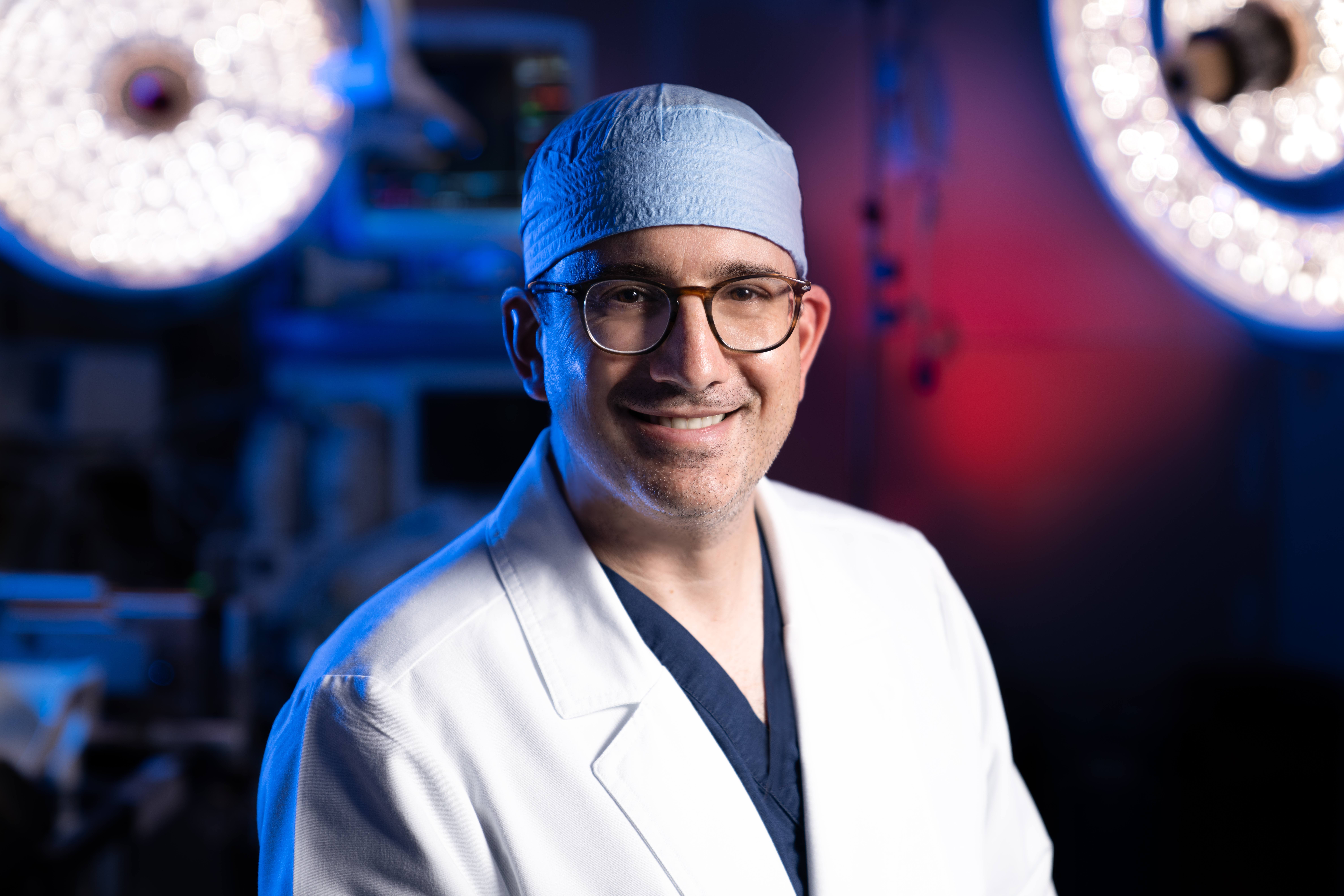
#TheMindBehind Barrow Neuroanesthesiology: Marc McLawhorn, MD
Although Dr. Marc McLawhorn’s roots lie in the South and his military work takes him across the globe, the neuroanesthesiologist has found a home at Barrow Neurological Institute.
Dr. McLawhorn is drawn to the operating room because of its culture of teamwork, communication, and precision. He felt so intrigued by the OR environment as a medical sales representative that he decided to explore a career in medicine himself.
He enrolled in medical school at the Medical University of South Carolina, where he had earned his master’s degree in clinical laboratory science. It was there that he developed his interest in anesthesiology.
While studying physiology in his second year, Dr. McLawhorn grew fascinated by the way body systems interact with each other and respond to drugs.
“Anesthesia balanced the mastery of physiology with the ability to do procedures,” he said, recalling his decision to pursue the field.
Perioperative and critical care also guaranteed him exposure to a wide variety of medical conditions and numerous training hours in an intensive care unit, where he would be able to help patients with the greatest needs.
Choosing Neuroanesthesiology
After graduating with his medical degree, Dr. McLawhorn stayed at the Medical University of South Carolina for his anesthesiology residency. During that time, his father underwent brain surgery for drug-resistant epilepsy.
“That got me into the neuro aspect of anesthesia,” he remembered.
Dr. McLawhorn left his home state of South Carolina and ventured north for a neuroanesthesiology fellowship at Duke University. There, he specialized in awake brain surgeries.
Neurosurgeons primarily use awake procedures for the removal of brain tumors. By having the patient communicate and interact with the OR team during surgery, the neurosurgeon can ensure preservation of important functions like speech and movement.
“One of the things with anesthesia is you don’t get a lot of interaction with the patient,” Dr. McLawhorn said. “Neuroanesthesia is that one subset where you might actually awaken the patient during surgery and have a direct connection with them. Talking them through and managing them during surgery while it’s happening definitely develops a rewarding bond.”
Advancements in intraoperative imaging have reduced the need for awake surgeries, but Dr. McLawhorn also enjoys managing patients through spinal deformity cases—which can be lengthy and complex.
Joining Barrow: One of the ‘Best and Busiest’ ORs
After completing his fellowship, Dr. McLawhorn set his sights on Barrow Neurological Institute in Phoenix, Arizona—home of the largest neurosurgical OR and ICU in the United States and an institution known for taking the most challenging cases.
“As someone who was coming out of neuroanesthesia fellowship training, I wanted to be at one of the best and busiest places in the world,” he said.
As chair, I’m working in conjunction with the nursing staff, surgeons, and other anesthesiologists in providing world-class care to the patients that come here.
Marc McLawhorn, MD, Chair of Neuroanesthesiology
Dr. McLawhorn joined Valley Anesthesiology and Pain Consultants, a physician group providing anesthesia services for Barrow.
He spent about three years at Barrow before family ties brought him back to the South. He worked as a staff neuroanesthesiologist at Vanderbilt University Medical Center but was able to return to Barrow this past March—this time as the Institute’s first Chair of Neuroanesthesiology.
“As chair, I’m working in conjunction with the nursing staff, surgeons, and other anesthesiologists in providing world-class care to the patients that come here,” he said.
He also plans to spearhead new research efforts, starting with studies of OR efficiency and optimization of monitoring for minimally invasive spine surgeries.
Critical Care Air Transport: Doing More with Less
Dr. McLawhorn is balancing his role at Barrow with his work in the United States Air Force, for which he serves as a physician on a Critical Care Air Transport Team (CCATT). He is responsible for resuscitation, stabilization, and the critical care movement of injured soldiers. It’s a job that tests his resourcefulness in a meaningful way.
“You’re having to do more with less because you’re basically setting up a Level 1 ICU inside of an airplane,” he said. “You see the worst of what can happen to soldiers and care for them. It’s very gratifying.”
The Air Force promoted Dr. McLawhorn to director of the 943rd Aerospace Medicine Squadron CCATT team at Davis-Monthan Air Force Base in Tucson just before he accepted the job at Barrow.
“Up until two weeks of starting at Barrow, I was deployed to the Middle East,” he said. “I came back, packed my bags, and drove out here.”
He has also been traveling to Alaska to train with the Army in critical care for arctic operations. His recent work in arctic medicine is one of his passions outside of the operating room, along with hiking and cycling.
But between his chairman and military duties, Dr. McLawhorn can still be found enjoying the unique atmosphere of the OR.
“We’re all working toward a common goal,” he said, “which is the best outcome for the patient.”
